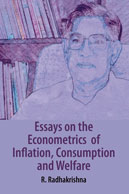India Perspectives on Equitable Development
About the Book
Though the country witnessed high growth in the past two decades, the problems of slackening pace in poverty reduction and employment creation, widening regional disparities, ever increasing rural-urban divide and agrarian distress manifested in the form of suicides of farmers are disturbing to say the least. These developments in contemporary India have once again led to the realisation of the need for 'inclusive growth' being articulated by policy makers, intelligentsia and the civil society. In this context, the Centre for Economic and Social Studies, Hyderabad organised an international conference on the “Perspectives on Equitable Development” as a part of its Silver Jubilee celebrations. This book is a collection of the research papers presented in the conference by eminent scholars across the country and focus on different aspects of equitable development. These are presented in six interrelated themesmacroeconomic performance and policies; employment, food security and poverty; physical and social infrastructure; agriculture and rural industrialisation; foreign direct investment in manufacturing and services; and socio-political issues in the reform process
About the Author(s) / Editor(s)
<p><strong>S. Mahendra Dev </strong>is Chairman, Commission of Agricultural Costs and Prices. Earlier he was Director, Centre for Economic and Social Studies, Hyderabad, Andhra Pradesh, India for nine years. He has written extensively on agricultural development, poverty and public policy, food security, employment guarantee schemes, social security, farm and non-farm employment. He has been a consultant to many international organisations like the UNDP, World Bank, International Food Policy Research Institute, ESCAP and has also worked as a member in committees set up by the Government of India.</p>
<p> </p>
<p><strong>N. Chandrasekhara Rao</strong> is Associate Professor at the Centre for Economic and Social Studies, Hyderabad. Several of his research papers have been published in reputed journals in the field of economics. His areas of research interest include agricultural and development economics, employment and poverty reduction.</p>
Contributors
<p><strong>Rashmi Banga</strong> is currently an economist in the United Nations Conference on Trade and Development (UNCTAD-India Programme). She was an Associate Professor in the School of International Studies, Jawaharlal Nehru University (JNU), India and has taught in Delhi University for 15 years. Dr. Banga has also been a consultant to the Indian Council for Research in International Economic Relations (ICRIER) and has worked extensively on various trade and investment related issues.</p>
<p> </p>
<p><strong>G.K. Chadha</strong> is a Member of the Prime Minister’s Economic Advisory Council. Earlier, he was a Professor of Economics and Vice-Chancellor of Jawaharlal Nehru University, New Delhi. Prof. Chadha has been engaged in teaching and research for nearly 38 years now. He has written 16 books besides contributing 85 research papers to national and international research journals on various development issues relating to India and other developing countries of Asia, notably Indonesia and China. Prof. Chadha has been a Consultant to several international development organisations including United Nations agencies such as ILO, FAO, UNCTAD, ESCAP, etc., besides serving on numerous other international and national expert committees.</p>
<p> </p>
<p><strong>Errol D’Souza</strong> is currently a Professor at the Indian Institute of Management, Ahmedabad. His current academic interests include tax reforms and fiscal/monetary policy, the structure of corporate finance, social security and livelihood issues in the informal sector, and personnel economics. He is the author of a book entitled Macroeconomics published by Pearson Education, Delhi. He has published articles in the above areas in various journals and books. He is an Associate of the Indian Institute of Advanced Studies, Shimla, and a consultant to industry, the banking sector, UNDP, ILO, and government. He is on the Advisory Committee of UGC programmes and Director on the board of the National Housing Bank.</p>
<p> </p>
<p><strong>R.S. Deshpande</strong> is currently Director, Institute for Social and Economic Change, Bangalore. Prof. Deshpande has 29 years of research and teaching experience, and has served on various policy bodies of the Government of India and Government of Karnataka. Among his important published books are: Crops and Cultivation: State of the Indian Farmer—A Millennium Study and NGOs and Farmers’ Movements, State of the Indian Farmer—A Millennium Study. His current academic interests include farmers suicides in India, droughts and natural disasters, international trade, WTO and its impact on agriculture and watershed development. Currently he is a member of the Karnataka Agricultural Prices Commission and on the Expert Group on WTO and Agriculture of the Ministry of Commerce, Government of India.</p>
<p> </p>
<p><strong>S. Mahendra Dev</strong> is Chairman, Commission of Agricultural Costs and Prices. Earlier he was Director, Centre for Economic and Social Studies, Hyderabad, Andhra Pradesh, India for nine years. He has written extensively on agricultural development, poverty and public policy, food security, employment guarantee schemes, social security, farm and non-farm employment. He has been a consultant to many international organisations like the UNDP, World Bank, International Food Policy Research Institute, ESCAP and has also worked as a member in committees set up by the Government of India.</p>
<p> </p>
<p><strong>Shaik Galab</strong> is a Professor at the Centre for Economic and Social Studies. His recent work focuses on social capital, women empowerment, child labour and livelihoods. Dr. Galab is also a member of Farmers Welfare Commission, Government of Andhra Pradesh. He is the co-author of the book On Joint Forest Management in Andhra Pradesh. His recent publications appeared in journals such as Development and Change, Economic and Political Weekly. Presently he is leading Young Lives Project India as Principal Investigator.</p>
<p> </p>
<p><strong>Bishwanath Goldar</strong> is a Professor of Economics at the Institute of Economic Growth, Delhi. He is currently head of the V.K.R.V. Rao Centre for Studies in Globalisation. He specialises in industrial economics and international trade. He has a large number of publications including papers published in international professional journals. Bulk of his research has been on industrial productivity, employment, wages and price-cost margin in Indian industries, protection of Indian industries, impact of trade reforms, and foreign direct investment in India.</p>
<p> </p>
<p><strong>Naveen Hegde </strong>worked as Research assistant at the Agricultural Development and Rural Transformation Centre, Institute for Social and Economic Change, Bangalore. He has obtained an MA in Economics from the Karnataka University Dharwad and has kept up a deep interest in research.</p>
<p> </p>
<p><strong>Nagesh Kumar</strong> is Director-General of RIS, a New Delhi based policy think-tank devoted to trade and development related issues. He serves on a number of government committees and expert groups and on the governing boards of the International Centre for Trade and Sustainable Development (ICTSD), Geneva and the South Asia Centre for Policy Studies (SACEPS), Kathmandu. Dr. Kumar has written extensively on the developmental impact of FDI, regional economic integration in Asia, WTO and development, new technologies and development, among other themes and is a co-editor of the South Asia Economic Journal.</p>
<p> </p>
<p><strong>Dilip Madhukar Nachane</strong> is Director, Indira Gandhi Institute of Development Research, Mumbai. He has been the Managing Editor of the Journal of Quantitative Economics since 1995 and is member of a number of official bodies. He wrote 6 books and 85 research articles in reputed journals in the field of economics.</p>
<p> </p>
<p><strong>Jayaprakash Narayan</strong> is a physician by training, a public servant by choice, and a democrat by conviction. He joined the Indian Administrative Service in 1980 in the aftermath of the Emergency and the failure of the Janata Experiment. Among other things, he served as Secretary to both the Governor and Chief Minister. In 2006, he initiated the launch of the Lok Satta Party, a movement for new political culture in the state of Andhra Pradesh and is serving as its National Coordinator.</p>
<p> </p>
<p><strong>Thangavel Palanivel</strong> is currently the Senior Advisor and Team Leader of the Macroeconomic modelling cluster at the UNDP Asia-Pacific Regional Centre in Colombo, Sri Lanka. He holds a doctorate in Economics and has more than 20 years of research and programme management experience. His areas of specialisation include macroeconometric modelling, macroeconomic (including growth, fiscal, employment) policies, and national development plans/poverty reduction strategies formulation. He has published several research articles on development issues in journals and other publications.</p>
<p> </p>
<p><strong>Manoj Panda</strong> is Professor at the Indira Gandhi Institute of Development Research, Mumbai. His major areas of interest are development and uses of applied general equilibrium models for policy analysis, issues in poverty and environment. He has a number of publications in international and national journals as well as in edited books. He has served as a consultant to various international bodies such as the United Nations, the World Bank and the Asian Development Bank.</p>
<p> </p>
<p><strong>C. Rangarajan</strong> is a leading economist of the country, who has played a key role both as an academician and policy maker. He is currently Chairman, Economic Advisory Council to the Prime Minister. Prior to this, he was Chairman of the Twelfth Finance Commission. He was Governor of Andhra Pradesh between 1997 and 2003. He was Governor, Reserve Bank of India during 1992-1997. During this period, he gave a major thrust to financial sector reforms and effected the transition to a market based exchange, rate regime. He was a Member of the Planning Commission in 1992. He was, for well over a decade and half, Professor at the Indian Institute of Management, Ahmedabad. He was President of the Indian Economic Association in 1988 and President of the Indian Econometrics Society in 1994. He was awarded Padma Vibhushan in 2002.</p>
<p> </p>
<p><strong>N. Chandrasekhara Rao</strong> is Associate Professor at the Centre for Economic and Social Studies, Hyderabad. Several of his research papers have been published in reputed journals in the field of economics. His areas of research interest include agricultural and development economics, employment and poverty reduction.</p>
<p> </p>
<p><strong>C. Ravi </strong>is a Fellow at the Centre for Economic and Social Studies where he has been involved in several research and sponsored projects in the areas of demand analysis, food security, poverty, nutrition and welfare. He originally belongs to the Directorate of Economic and Statistics (DES) of the state government where he was in charge of the socio-economic survey wing and was responsible for the conduct of field surveys, data analysis and preparation reports.</p>
<p> </p>
<p><strong>T.L. Sankar </strong>is presently Honorary Visiting Professor in the Administrative Staff College of India, Hyderabad. He has done several assignments for the Government of Andhra Pradesh, Government of India and international organisations in his 35-year career with the Indian Administrative Service. He also served as Director-General, National Institute of Rural Development, Director, Institute of Public Enterprise and Principal, Administrative Staff College of India. He has jointly edited two books, co-authored one, and wrote several book chapters, papers and articles.</p>
<p> </p>
<p><strong>Alakh N. Sharma</strong> is the Director of the Institute for Human Development, New Delhi and the editor of The Indian Journal of Labour Economics. He has made significant contributions to research in areas such as poverty, migration, employment and labour markets.</p>
<p> </p>
<p><strong>Dimitri Silva</strong> is currently a research student at Hitotsubashi University, Japan. He was involved in this study during his internship at the International Poverty Centre, UNDP, Brasilia. Some major areas of his interest are inequality and education.</p>
<p> </p>
<p><strong>Manmohan Singh</strong> is the Prime Minister of India. He is considered one of the most influential figures in India’s recent history, mainly because of the economic reforms he had initiated in 1991, when he was Finance Minister under Prime Minister P.V. Narasimha Rao during 1991-1996. He did D.Phil in economics from the University of Oxford. His book, India’s Export Trends and Prospects for Self-Sustained Growth [Clarendon Press, Oxford, 1964] was an early critique of India’s inward-oriented trade policy. He taught in the Punjab University, Chandigarh and the Delhi School of Economics in the beginning of his career. Thereafter, he took up several assignments in the government successfully as Secretary, Ministry of Finance (1976-1980), Governor, Reserve Bank of India (1982-1985), Deputy Chairman, Planning Commission (1985-1987) and advisor to the Prime Minister of India on Economic Affairs (1990-91). He was also the Secretary General of the South Commission in Geneva between 1987 and 1990. The University of Oxford awarded him with an honorary Doctor of Civil Law degree in 2005. In 2006, the University of Cambridge followed with the same honour. He served as Leader of the Opposition in the Rajya Sabha from March 1998 to May 2004 before becoming the Prime Minister. He received numerous awards including Padma Vibhushan in 1987.</p>
<p> </p>
<p><strong>Karli Srinivasulu </strong>is Professor and Head, Department of Political Science, Osmania University, Hyderabad. His research interests include political theory, agrarian and Dalit movements, electoral politics and public policy. He has numerous publications to his credit. He edited a book Agrarian Question in India. He is presently working on a monograph entitled Dalit Movement in Andhra Pradesh.</p>
<p> </p>
<p><strong>K. Subbarao</strong> is currently a consultant on safety nets and social protection for the Southern Region of the World Bank. He was until recently a lead economist in the Africa Region of the Bank where he played a major role in analytical and policy work on poverty, particularly in the domain of safety nets. His recently completed work and current research interests include ageing and poverty in Africa and the role of social pensions, understanding risk and vulnerability in rural Kenya, social protection of orphans and vulnerable children in Africa, and food aid and food security policies in Asia and Africa. He has authored or co-authored 8 books and over 50 research papers in various professional economic journals.</p>
<p> </p>
<p><strong>K.C. Suri</strong> is Professor in the Department of Political Science, School of Social Sciences of the University of Hyderabad. Dr. Suri’s research interests include democratic theory and practice, political parties, Indian politics, and social movements. He has published a book on peasant movement in Andhra (1986) in Telugu, and contributed articles on the agrarian question, land reforms and political economy over the past two decades. His report based on a two-year research programme on political parties in South Asia was published (2007) under the title Political Parties in South Asia: The Challenge of Change. Presently he is involved in a research study on the condition of cotton farmers in India.</p>
<p> </p>
<p><strong>M.H. Suryanarayana</strong> is a Professor at the Indira Gandhi Institute of Development Research, Mumbai. The present chapter is based on work carried out during his tenure as an Economic Specialist at the International Poverty Centre, UNDP, Brasilia during 2004-05. His research interests include statistics, econometrics and development economics.</p>
<p> </p>
<p><strong>Jandhyala B.G. Tilak</strong> is a Professor at the National Institute of Educational Planning and Administration, New Delhi. Dr. Tilak was also on the research staff of the World Bank. His publications include 8 books and more than 250 research papers published in professional journals of high repute in the areas of economics, development studies and education. He is also the editor of the Journal of Educational Planning and Administration, and is associated (as a member of the editorial board) with several national and international journals.</p>



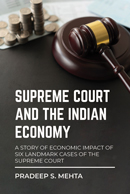
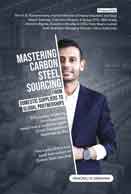


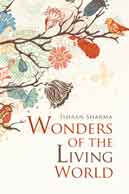
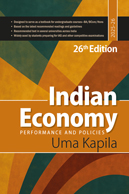
-web-194.jpg)
-front.jpg)
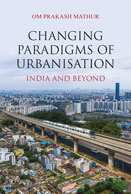








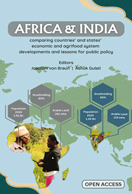
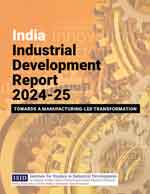
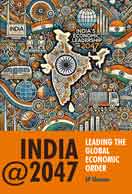
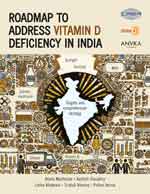
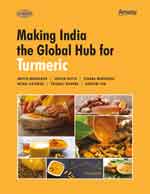
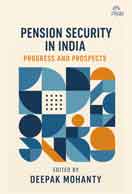
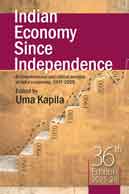
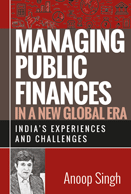
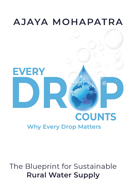
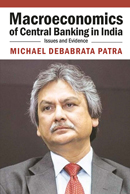
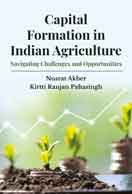









-COVER-web-194.jpg)





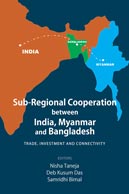






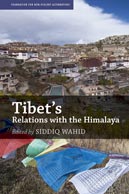



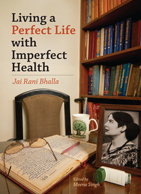












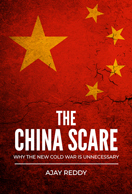
.jpg)






